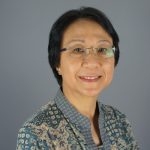There is an urgent need in the global church to equip pastors, missionaries, lay leaders, and in fact all Christians who are committed to making disciples for Christ of all nations. How could this need be met adequately and effectively? Not everyone would be able to go through time-consuming and costly formal training in accredited institutions. Manfred Kohl believes that the solution lies in providing resources for ‘establishing specific, meaningful guidelines,’ and ‘internationally recognized and outcome-based standards’ for leadership training. In ‘A Global Standard for Ministry Training: Re-Forma’s response to the crisis of poorly-equipped church leadership’, he introduces the concept and model of Re-Forma, a global service provider of which he is the Founder and President. He hopes that organizations and institutions could benefit from the program, so that many more will be sufficiently equipped for ministry.
One area of ministry which urgently needs better equipping is reaching those not affiliated to any particular religion or the ‘nones’. In ‘Reaching the World’s Rising Nonreligious: A missiological exegesis of recent population trends’, Steve Sang-Cheol Moon, the Founder and CEO of Charis Institute for Intercultural Studies, alerts us to the trend that ‘the global number of religious “nones” is predicted to grow rapidly in the coming decades.’ The growth factors for this phenomenon are mainly ‘socio-cultural and life-course influences on religious commitment.’ To understand and address the issues related to religious disaffiliation and secularization behind it, ‘integral or holistic approaches’ are crucial. Such holistic approaches are effective in reaching the ‘nones’ and they include: sharing the gospel with our neighbours and others in a holistic way, sharing our resources with those in need, and sharing our responsibilities and leadership with others across boundaries.
Christians everywhere are to be equipped to dialogue with Muslims and to have a genuine constructive engagement with them. This requires understanding what Muslims believe in the teaching of Muhammed as guided by his book, the Quran, and the connection between the Bible and the Quran. There are ‘many allusions to biblical stories and characters’ in the Quran. How should Christians respond to such biblical materials? Has Islam arisen from a heretical Christian root? In ‘What Is Islam’s Relationship to Christianity?— A theological analysis of the Bible and the Quran’, Mark Durie, the Founding Director of the Institute for Spiritual Awareness, argues that ‘there is a deep theological disconnect between the Bible and the Quran,’ and concludes that ‘the sheer volume of biblical reflexes in the Quran is not actually evidence of a deeper “family-tree” affinity between Islam and Christianity.’ This perspective liberates Christians to understand Islam ‘for what it actually is’ and to have fresh approaches to our interfaith engagement.
Reconciliation between the people from two nations with a historical relationship of animosity is as challenging as building bridges between Christians and Muslims who harbour fear and prejudices towards each other. But the barriers could be overcome through the power of forgiveness, as demonstrated in the testimony of love shown by the Korean Onnuri Community Church towards Japanese. In her article ‘A Korean Love Sonata for Japan: Bridging deep divides through song, sacrifice, and forgiveness’, Eiko Takamizawa, a Japanese missiologist and former Professor at Torch Trinity Graduate University in Seoul, describes the multi-dimensional ‘Love Sonata’ project of this Korean church in Japan and analyzes its amazing positive impact on the Japanese people and church.
The global church is once again challenged to tear down walls which divide us and bring healing and the living hope of Christ to our broken, wounded world.
Lausanne Global Analysis is also available in Portuguese, Spanish, and French. Please send any questions and comments about this issue to analysis@lausanne.org. The next issue will be released in January 2022.

